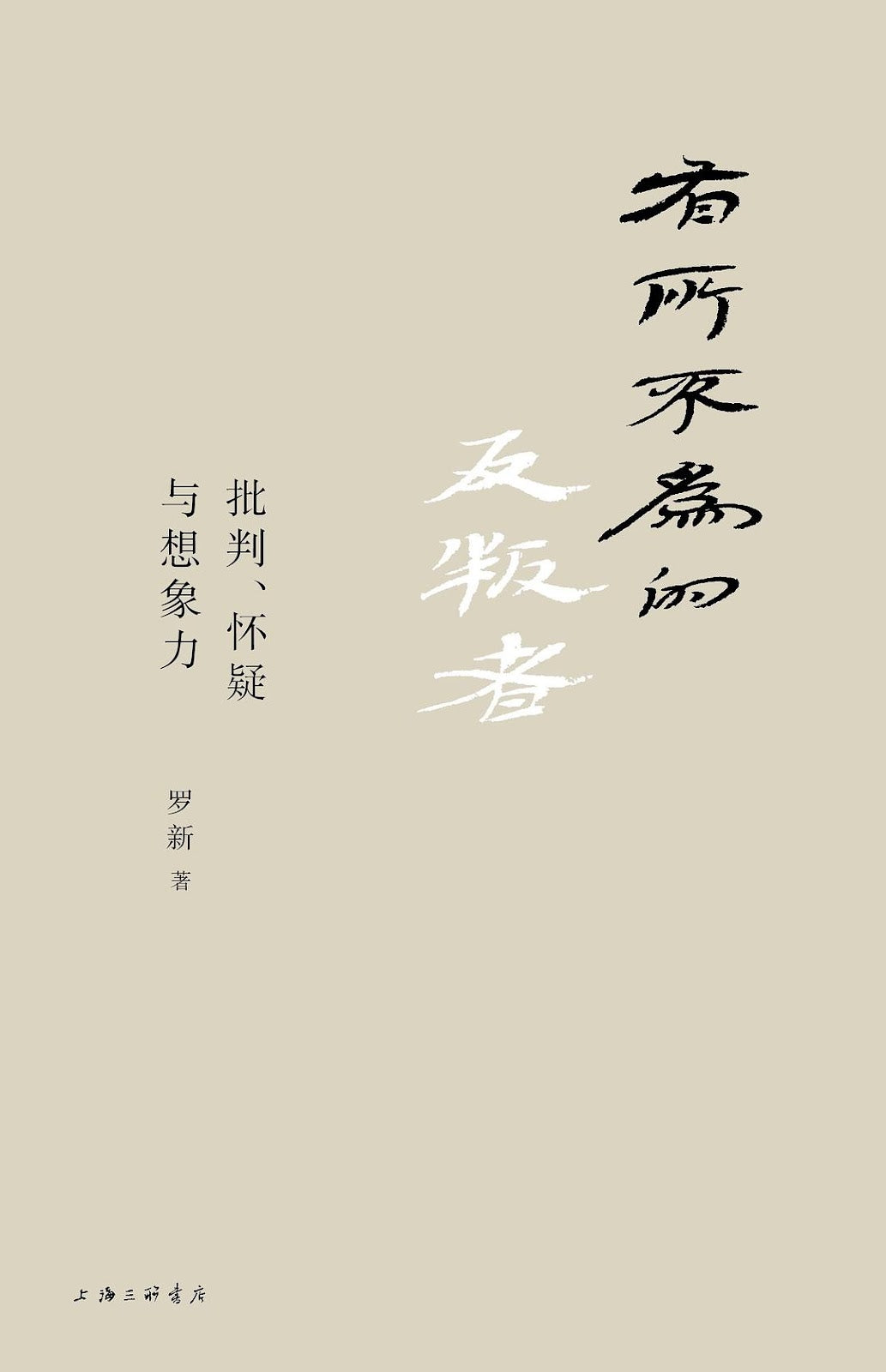1
/
of
1
The rebel who refuses to do anything
The rebel who refuses to do anything
Criticism, skepticism, and imagination
Luo XinRegular price
$15.99 USD
Regular price
$15.99 USD
Sale price
$15.99 USD
Unit price
/
per
Low stock
Couldn't load pickup availability
About Book
About Book
In recent years, Professor Luo Xin has written numerous academic essays on professional reflection, reflecting his reflections and understanding of history, historiography, and historical work. These essays echo his journey outside his study to explore history, discover China, and understand the world. Their shared purpose is to explore the depth of history and to discover and recount unique historical stories.
This book uses a series of case studies to discuss issues such as the virtues of historians, the use and reflection of historical materials, the diversity of historical narratives and the reasons behind them, historical memory and forgetting, how to transcend nationalist historiography, the origin legends and myths of ancient nations, the imaginative space for historical research, the advance and retreat of the western border of Chinese civilization, and the internal and external importance of the imperial system. It questions traditional historical discourse in the way of historians and demonstrates a healthy attitude and method for viewing and interpreting history.
★ Where does our historical knowledge come from?
★ Could traditional historical narratives and well-known historical understandings be wrong?
★ Why is history abused and misused? Why are there deviations and errors in historical knowledge?
★ Are the Xiongnu a story or history? Are the wolf ancestors a legend or reality?
★ Did the swords worn by Western European knights really come from China?
★ What exactly was Kublai Khan’s historical challenge?
Reflecting on the singularity and purity of historical narratives, and demonstrating a model for independent and healthy historical analysis and observation. We use history constantly. Ensuring the correctness and accuracy of historical knowledge, and preventing its abuse or misuse, is crucial to human spiritual health and mental development, and this is precisely the responsibility of historians. Ensuring this responsibility is ensured by the historian's virtues: criticism, skepticism, and imagination.
The history we are familiar with contains a wealth of myths and pseudo-history. Some of these will be exposed, eliminated, and replaced, while others, due to a lack of historical materials and limited evidence, leave skeptics helpless. The virtues of skepticism and criticism not only give us the courage to expose myths and create new knowledge, but also help us maintain vigilance and distance from those myths, both old and new, that are difficult to shake for the time being.
This book uses a series of case studies to discuss issues such as the virtues of historians, the use and reflection of historical materials, the diversity of historical narratives and the reasons behind them, historical memory and forgetting, how to transcend nationalist historiography, the origin legends and myths of ancient nations, the imaginative space for historical research, the advance and retreat of the western border of Chinese civilization, and the internal and external importance of the imperial system. It questions traditional historical discourse in the way of historians and demonstrates a healthy attitude and method for viewing and interpreting history.
★ Where does our historical knowledge come from?
★ Could traditional historical narratives and well-known historical understandings be wrong?
★ Why is history abused and misused? Why are there deviations and errors in historical knowledge?
★ Are the Xiongnu a story or history? Are the wolf ancestors a legend or reality?
★ Did the swords worn by Western European knights really come from China?
★ What exactly was Kublai Khan’s historical challenge?
Reflecting on the singularity and purity of historical narratives, and demonstrating a model for independent and healthy historical analysis and observation. We use history constantly. Ensuring the correctness and accuracy of historical knowledge, and preventing its abuse or misuse, is crucial to human spiritual health and mental development, and this is precisely the responsibility of historians. Ensuring this responsibility is ensured by the historian's virtues: criticism, skepticism, and imagination.
The history we are familiar with contains a wealth of myths and pseudo-history. Some of these will be exposed, eliminated, and replaced, while others, due to a lack of historical materials and limited evidence, leave skeptics helpless. The virtues of skepticism and criticism not only give us the courage to expose myths and create new knowledge, but also help us maintain vigilance and distance from those myths, both old and new, that are difficult to shake for the time being.
Publication Date
Publication Date
2019-05-01
Publisher
Publisher
上海三联书店
Imprint
Imprint
Ideal Country
Pages
Pages
280
ISBN
ISBN
9787542666468
share

